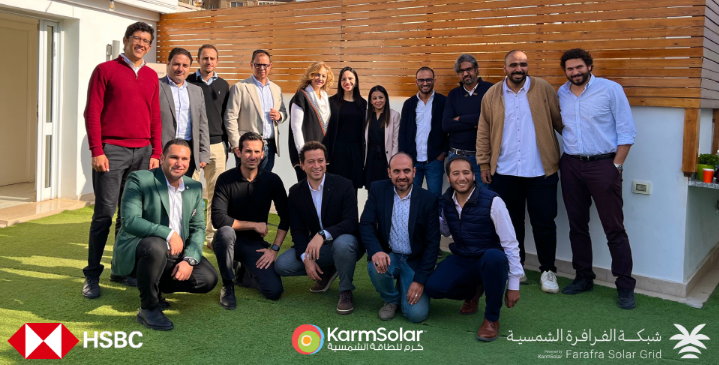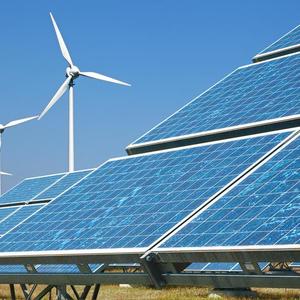Egypt-based solar power developer and electricity distributor, KarmSolar, has secured EGP83 million (approximately $3 million) in debt funding to support the further development and rollout of Farafra Solar Grid, the company’s second micro-grid-solution, which will cover one hundred percent of clients’ load.
KarmSolar’s overarching mission is to serve as a driving force behind the expansion of the private solar energy market in Egypt. To this end, the company plans to introduce novel and comprehensive solutions to the industrial, agricultural, commercial, and tourism markets.
Read also: KarmSolar Launches a New Minority Stake Round
What KarmSolar Aims For With This Development
The Farafra Solar Grid is a first-of-its-kind microgrid solution that utilises solar PV panels, a battery storage system, and diesel generators in a centralised setup, operating under a usufruct agreement and then distributing the generated electricity to the various off-takers. Its goal is to become fully operational by the third quarter of 2023.
In the first phase of the Farafra Solar Grid, KarmSolar’s SPV, Mars for Selling and Distributing Electricity, will create a solar photovoltaic (PV) station with a capacity of 3.4 megawatts peak (MWp), diesel generators with 3.7 MVA, and a solar battery storage system with a capacity of 4 MWh/1MW.
The project will make it possible to utilise solar energy to the extent of around 60%, with the goal of utilising it to the extent of 100% during the next three years. This will result in a reduction of approximately 5,200 tonnes of CO2 emissions annually.
Through the assistance of Ezdaher Financial Consultancy, the solar grid project was able to secure debt financing from HSBC in the amount of EGP83 million, which is equivalent to $3 million USD.
According to Ahmed Zahran, co-founder and CEO of KarmSolar, the launch of the Farafra Solar Grid paves the way for the management of KarmSolar to realise their objective of bringing reasonably priced and dependable solar energy to regions of the country that are somewhat difficult to access.
He also finds it quite pleasant to see organisations like HSBC willing to focus their efforts and trust towards investing in nonconventional projects like the Farafra Solar Grid.
“The kickoff of the Farafra Solar Grid enables us to achieve our vision of extending affordable, reliable solar energy to relatively inaccessible parts of the country. It is very refreshing to see institutions like HSBC willing to focus their efforts and trust towards investing in nonconventional projects like the Farafra Solar Grid,” he said
According to Yasmin Farid, head of small and medium enterprises and business banking at HSBC Bank Egypt, “HSBC is committed to supporting and financing the transition to secure a net zero future by helping our clients access sustainable and innovative finance solutions across all business sectors so they can make the investments needed to achieve their net zero goals.”
A Previous Fund KarmSolar Acquired
KarmSolar is now in the process of securing this $3 million debt fund After successfully receiving $2 million in finance for electricity storage at the Cairo 3A poultry farm approximately two months ago. At the time of the previous find, there was already a solar photovoltaic plant in operation there by the corporation.
A commercial bank called QNB Alahli, which is a subsidiary of Qatar National Bank, provided the funding for the project (QNB), the previous fund. This was a part of a transaction that the Egyptian company Ezdaher Financial Advisory advised on.
KarmSolar planned to use the funds from the loan to instal an electricity storage system as part of the second phase of a solar farm that the company is constructing as part of an effort to provide power to the Cairo 3A Poultry Farm, which is situated in the Bahareya oasis in the Giza governorate of Egypt.
The farm will be powered by solar energy, and KarmSolar is committed to providing 100 MWp of that electricity. The firm has already erected a solar farm in the region, which is equipped with a storage system with a capacity of 1 MW/3.957 MWh.
KarmSolar is committed to supplying the citizens of Egypt with solar energy, and the funds enable them to attain their goals.


